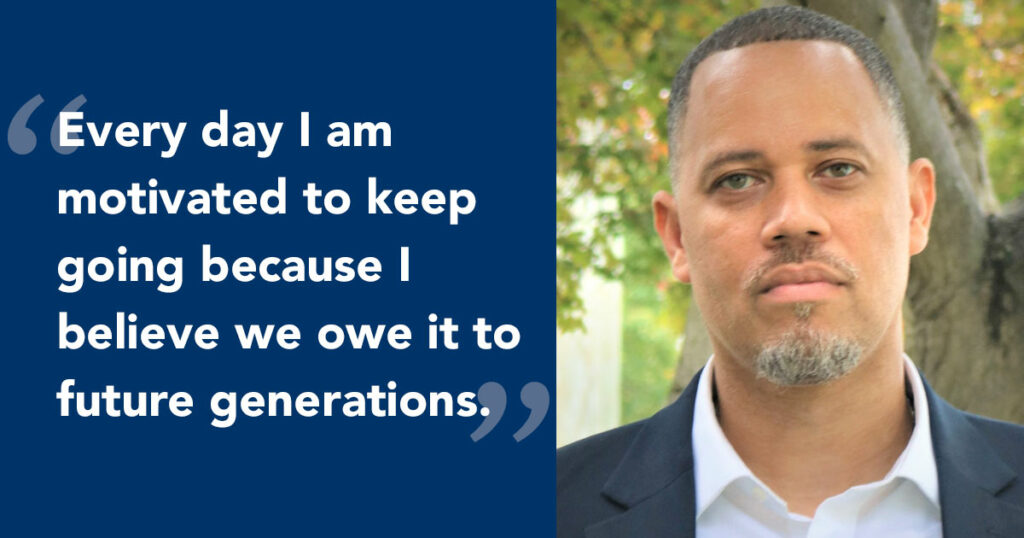Blog
“We Owe it to Future Generations”: Diallo Brooks on Building Racial Justice Inside and Outside Philanthropy

We sat down with Diallo Brooks, Schott Foundation’s new Senior Vice President of Programs and Advocacy. Diallo comes to Schott from People for the American Way, an organization dedicated to civil liberties, civil rights, and defending public institutions from the far right. At Schott, Diallo leads our programmatic and grantmaking efforts: working closely with our grassroots grantees and other funders to strengthen the education justice movement.
You moved from an activist organization to an intermediary, what prompted your move and how do you see your work evolving at Schott Foundation? How does this fit with your interest and passion for racial justice?
I have always felt like I’ve been called to work in the activist space and I believe that activism is the true engine that drives change. However, to broaden impact, philanthropic resources are needed to support the work of grassroots communities. For me, moving to philanthropy to work at the Schott Foundation is an opportunity to step into the foundation world but still work with an entity whose values and vision for change align closely with mine. It’s a chance to have a seat at the table as decisions about resource allocation are made and to hopefully help ensure more of those funds are explicitly directed towards grassroots movements that are working towards racial justice and equity.
You’ve been at Schott Foundation for more than a month now, what are some of the things that have surprised or challenged you?
I’ve been in the social justice space for over 25 years, so I can’t say that much surprises me at this point. That said, as I get close to the work Schott has been leading, I can see firsthand how many gaps still exist in philanthropic support for racial justice. I am encouraged by the persistence and dedication of our grantees pushing forward amazing work.
A lot of your work over the past few years has been focused on promoting democracy and civic participation, especially among BIPOC communities. Where do you see the links between racial justice at school and racial justice at the ballot box?
The ballot box is just one way we can make our voices heard but we must fight for more than just a vote. For me, civic engagement is about elevating the voice of the people. That includes advocating for all the social justice issues we care about. A thriving democracy that works for everyone isn’t real unless we proactively address every system of oppression that prevents BIPOC communities from thriving. If we want real change, the investment in racial justice must happen in not just the school building, but also the communities that surround them. To me, these issues are all interrelated.
Movement work isn’t easy, even as a funder. What keeps you motivated and energized every day, through the challenges and setbacks?
No matter where I am, I will always center the fight for racial justice in my work and my life. It’s who I am unapologetically. The movement absolutely can take a toll on a person and be emotionally overwhelming, especially because the systems that I have been working so hard to change have a direct impact on me, my children, family, friends, and community. However, even though I live this fight for racial justice every day I am motivated to keep going because I believe we owe it to future generations. Also, I must say that I am often energized by the social justice community itself, in creating community with others who are in this fight alongside me. It’s that fellowship and the support and love from my family and friends that keep me pushing forward.


